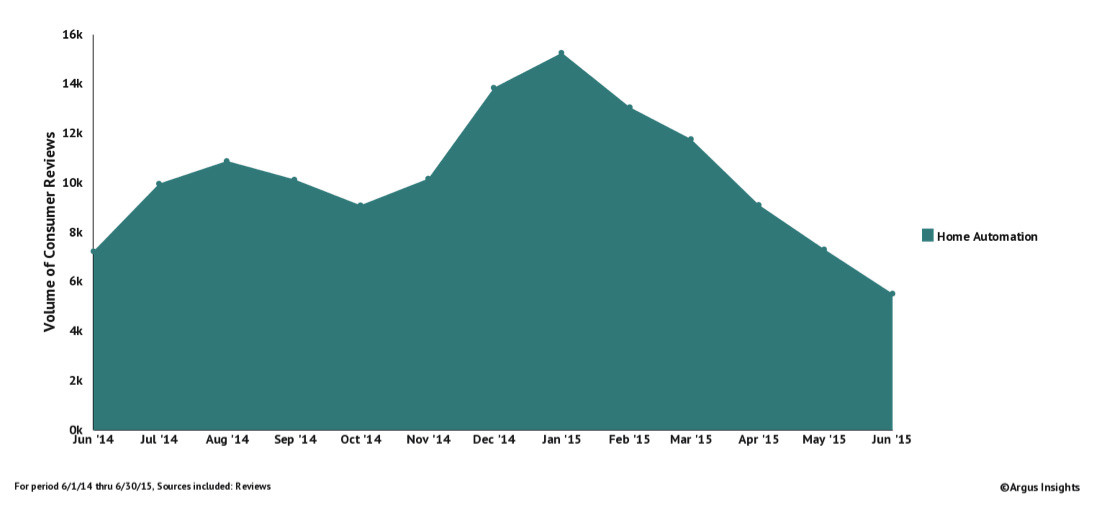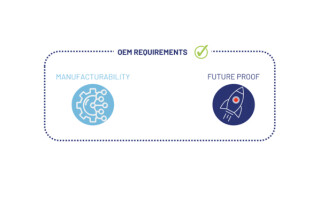Despite bold predictions, connected-home demand wanes
July 14, 2015

Advancements in technology have driven a vast growth of Internet of Things (IoT) devices, but the market is not echoing the high expectations of the b...
Advancements in technology have driven a vast growth of Internet of Things (IoT) devices, but the market is not echoing the high expectations of the brands producing this technology. While various projections of IoT growth have been made, reports of exuberance may be overstated. While there’s no weakness in interest, there is a weakness in product capabilities. “Connected home” brands promise simple installation and seamless integration, but these promises haven’t been fulfilled in the minds of users, leading to a stall in demand.
Creating a comfortable home is complex, and while the ultimate goal is to give people more time, this isn’t achieved if they must struggle with installation and connectivity issues. A Home Automation Consumer Demand Report by Argus Insights explores how this lack of human-facing solutions in the face of improving technology has caused a persisting drop in consumer demand.
Consumer review volume for home automation is lower this year than last (Click graphic to zoom)
Despite various projections of market growth, Argus Insights found that based on the decreasing volume of consumer feedback, demand for connected home products has been falling this year. This drop in consumer interest can be accredited to a lack of attention for the Internet of Humans in the development of the IoT. While the idea of a connected home is to help users save time, money, and piece of mind, most current products require that consumers pay for these benefits with a headache and confusion.
Tech fanatics served as early adopters to initially drive the market, but long reported flaws in connectivity and installation coupled with a lack of innovation. Combined, this is failing to intrigue new consumers. Select companies like SimpliSafe and Schlage are intriguing and delighting consumers with simple, effective, and need-focused products. These successful companies have opened people’s minds to what’s possible, but there’s still a lot to do, and demand is falling. The connected home market is full of potential, but companies must focus on the human benefits rather than technical possibilities to drive growth and adoption.
John is the founder and CEO of Argus Insights, a market intelligence company. Argus Insights sits between traditional research firms and social analytics companies to provide focused and actionable analysis on where consumers are taking the market, who is winning and why. John holds an B.S. in Mechanical Engineering from MIT, an M.S. in Mechanical Engineering from Stanford University, and a PhD in Mechanical Engineering from Stanford University.






